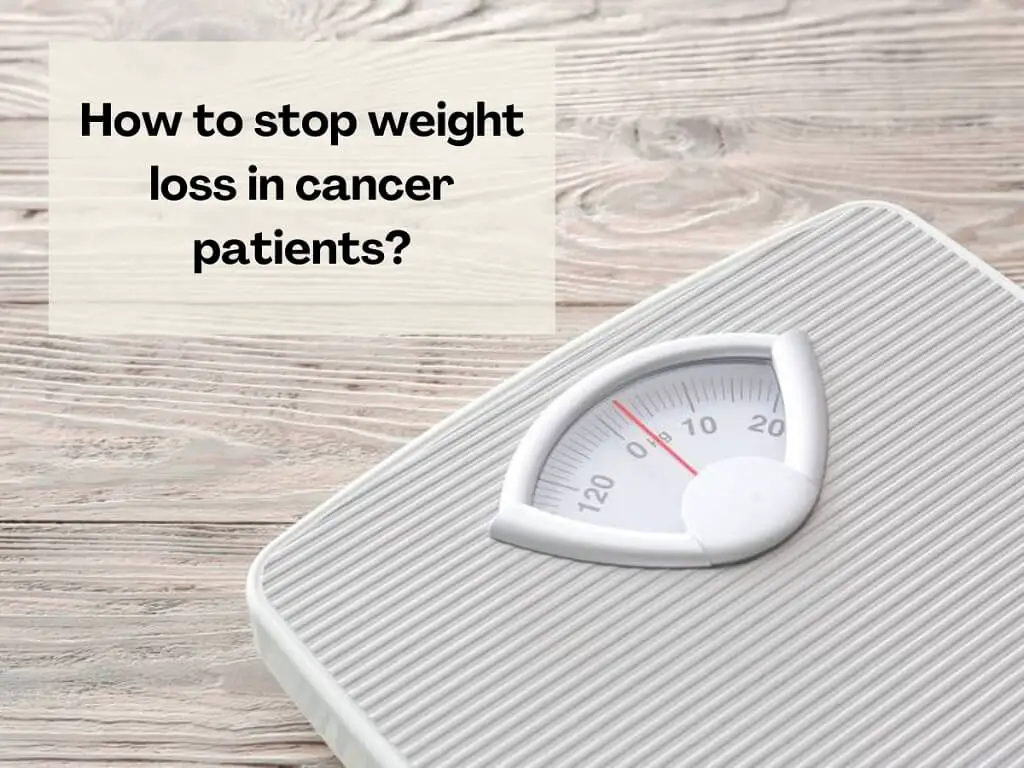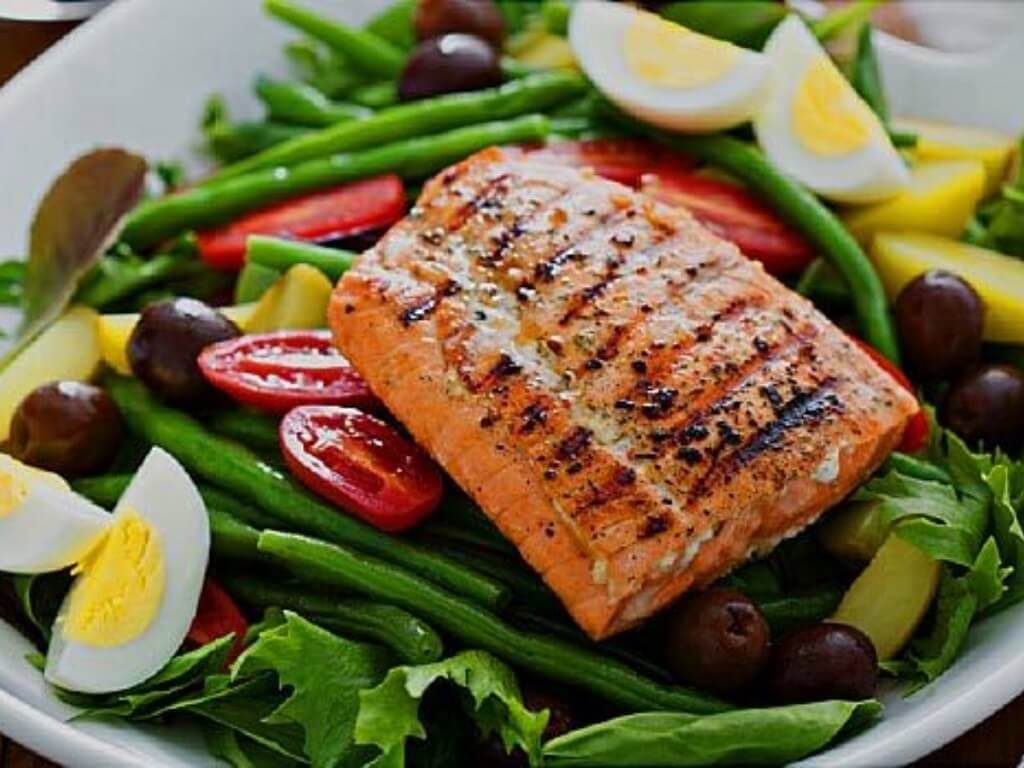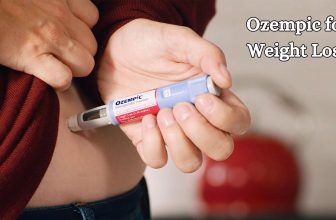How to Stop Weight Loss in Cancer Patients?

Cancer and weight loss
Cancer and weight loss have a close connection. Besides, weight loss is the most common side effect in most cancer patients. Though it’s common, you can’t ignore it as it can severely impact the treatment and after recovery. ” In this article you can learn “How to Stop weight Loss in cancer patients?” Let’s start:
Why do you lose weight with cancer?

Photo Credit: robustalive.com
There are many reasons behind the weight loss in cancer patients. Before cancer diagnosis, early weight loss can signify something is wrong with the body, especially with the stomach, lungs, esophagus, or pancreas. It’s caused by the substances released by the body known as cytokines that helps in the fighting of disease. Unfortunately, these substances adversely affect the body, such as weight loss, appetite loss, and muscle loss.
A person may not feel like drinking and eating, especially during radiotherapy and chemotherapy, due to mouth ulcers, lack of appetite, constipation, nausea, taste change, pain, or may be due to diarrhea.
The effectiveness with which the body absorbs and utilizes the nutrients it receives from meals might also be significantly impacted by treatment, making weight loss harder.
The body may not get the energy, protein, and other nutrients it needs when it has to be at its healthiest to endure treatment, despite weight loss being frequent in cancer patients. Therefore, it shouldn’t be disregarded.
BMI impact on treatment
Weight and height, often known as body mass index, are among the characteristics used to determine a patient’s best course of chemotherapy (BMI). Any weight changes since the time of diagnosis can have a direct and detrimental effect on the patient since they may no longer be able to tolerate the entire dose; more critically, a considerable drop in BMI could result in a complete delay of treatment. Maintaining a healthy diet can assist patients in lowering their risk of future muscle weight loss and increase their body’s ability to handle the recommended treatment dose.
Vital dietary components for cancer
The key to good nutrition is finding the nutrient mixture that a patient’s body requires to function appropriately, endure treatment, and maintain as much activity as possible. However, several nutrients are particularly significant in cancer:
- Protein: Vital for maintaining and regaining lean body mass in cancer patients, protein is necessary for maintaining and repairing body cells. According to international recommendations, cancer patients should take nearly twice as much protein per kilogram of body weight as the average healthy person (0.75g/kg vs. 1.25g/kg).
- Omega-3 polyunsaturated fatty acids: This nutrient’s anti-inflammatory qualities might help regulate or enhance appetite, food intake, lean body mass, and body weight.
- Micronutrients, such as vitamins, minerals, and trace elements: Cancer patients frequently suffer from micronutrient deficiencies due to their reduced dietary intake and some treatments’ aggressiveness.
- Dietary fiber: An essential component of a healthy diet, cancer patients can gain by taking the proper kind of fiber to enhance the regularity of their stools, especially if they are experiencing diarrhea due to radiotherapy or chemotherapy.
What should you do if you have trouble eating or are losing weight?
Cancer patients should speak with their healthcare provider if they have trouble swallowing or drinking, have accidentally lost weight, or have questions about their diet. It is crucial to remember that they do not need to wait to express their worries. It is OK to begin the discussion with the oncologist and the supporting medical staff.
Patients with head and neck cancer can use the following advice to make eating easier:
- Mouth dryness; Drink a lot of water. Select soft, moist foods. Eat fewer hot or spicy foods. Mix food with sauces and gravies after chopping it into small bits.
- Mouth and throat pain? Avoid foods that are crunchy, citrus, spicy, or salty. Eat food that is lukewarm or cold. Use milk or sauces and gravies to moisten food.
- Food tastes different: For flavors, use plastic utensils. Before every meal, rinse your mouth with an alcohol-free mouthwash or salt water solution and baking soda. Add sugar if the food tastes too salty. Add salt if the food tastes sweet.
- Problems chewing? Opt for soft foods. Foods can be chopped into small bits or pureed in gravies or sauces. Ingest drinks and smoothies high in protein.
Weight-Management for Patients Receiving Cancer Treatment
Perhaps the last thing on your thoughts is following a cancer diagnosis and how your diet might be affected by treatment. However, cancer can substantially impact your appetite, eating patterns, exercise levels, and weight, in addition to the adverse effects of therapies like chemotherapy, radiation, and surgery.
Most cancer patients lose weight during treatment, but some medicines, especially those for hormone-driven diseases like breast and prostate cancers, can cause weight gain. After treatment, returning to a “normal” diet presents difficulties. You should carefully manage your weight to improve your prognosis (chance of recovery). Significant weight loss or gain can harm this.
Don’t limit yourself to a particular diet
Chemotherapy and radiation treatments can have a variety of side effects, including nausea, taste alterations, and mouth sores, among others, that make it challenging or unpleasant to eat. However, many patients choose to restrict their diets as soon as they learn they have cancer to undo years of unhealthy eating patterns.
Suddenly, some claim they’re going vegetarian, vowing never to eat sweets again, or insist that everything be organic. But many struggle because they are unsure how chemo or radiation will affect them. When your treatment already limits what you can or want to eat, restricting your diet is not a bright idea.
Research indicates that consuming a variety of meals is healthier for your health. You should not restrict particular foods or nutrients because they might not affect the course of your cancer unless your doctor tells you to do so for medical reasons.
Stay hydrated
All cancer patients should stay hydrated to aid their bodies in coping with the side effects of treatment. But it’s also a chance for people attempting to stop losing weight to add calories to their diet in a tasty way.
Why not combine the two if we aim to increase calories as hydration becomes more crucial?
Water and calorie-containing beverages like 100% fruit juice work similarly. They maintain your hydration.
Stay Active
Cancer patients may find it challenging to get off the couch on some days, much less go for a walk outside, due to the common side effect of fatigue. But maintaining a physical activity level is crucial for weight management, whether weight loss or increase is sought since regular exercise preserves lean muscle mass.
Stop using supplements
The ideal diet consists of eating whole foods and acquiring the nutrients your body requires from them. Some cancer therapies and drugs can be negatively impacted by vitamins and other supplements, which aren’t governed by the US Food and Drug Administration or any other organization.
Tell your medical staff the truth about any pills, smoothies, powders, or other vitamin or herbal supplements you have been taking. Learn about herbs and any possible treatment effects or interactions with medications.
End words by the writer
Although losing weight might be beneficial, especially for those who have traditionally had trouble controlling their weight, it should not be done while receiving cancer treatment. When cancer patients lose weight, they mostly lose muscular, protective muscle tissue rather than fat tissue, which is essential to help fight cancer.
Cachexia is the term for this loss of muscular mass (also known as “lean body mass”). Cachexia can cause physical and mental exhaustion, but possibly more significantly; it can reduce a patient’s tolerance to treatment, which could impair their chances of survival.
Frequently Asked Questions(FAQ’s) How to Stop Weight Loss in Cancer Patients?
Why do cancer patients continue to lose weight?
Your body may use more calories at rest than usual because cancer cells require more energy than healthy cells. Additionally, the cells emit chemicals that have a loss on how your body burns calories, which can help you lose weight.
What food should cancer patients eat to put on weight?
Here is some professional’s advice that can assist you in consuming more calories: Boost food with butter or oils. Use lots of butter or margarine on potatoes, bread, toast, hot cereal, rice, noodles, veggies, and soups. Put olive oil or other oil on the vegetables, pasta, rice, and bread.
How can a cancer patient quickly put on weight?
Try to consume small, frequently spaced meals and snacks throughout the day. Use smaller dishes and glasses because standard serving sizes can be intimidating. Consider including calorie-dense, healthy foods like avocados and nut butter in your diet. Soups and smoothies are excellent providers of several nutrients and essential water.
What cancer stage does weight loss start?
According to the American Cancer Society, unexpected weight loss is frequently the first observable sign of malignancies of the esophagus, pancreatic, stomach, and lung. When a tumor becomes large enough to push on the stomach, other diseases, such as ovarian cancer, are more likely to result in weight loss.
Does cancer always result in weight loss?
Depending on the tumor’s location, between 30% and 80% of patients may have weight loss at some time throughout their illness. Sadly, it is estimated that between 20 and 40 percent of all cancer-related deaths are caused by starvation.
References
https://www.mskcc.org/news/8-tips-managing-weight-during-and-after-treatment
https://www.cancercenter.com/integrative-care/weight-loss
https://www.nutricia.com/specialize/oncology/weight-loss.html
https://www.rogelcancercenter.org/living-with-cancer/mind-body-and-side-effects/nutrition/gaining-weight-during-cancer-treatment
https://www.nhlbi.nih.gov/health/educational/lose_wt/BMI/bmicalc.htm





